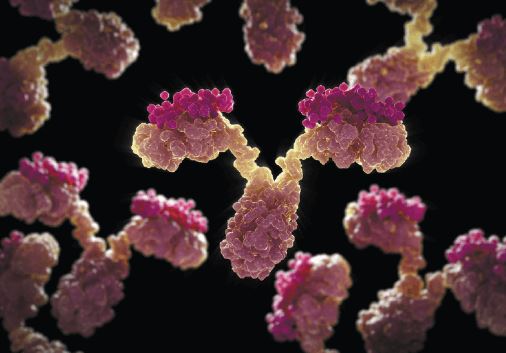As a well-recognized expert at phage display technology, Creative Biolabs provides high-quality service in phage display antibody library construction and screening. In order to select antibodies with high affinity and specificity, we have developed a series of selection strategies. Our scientists are pleased to tailor the most appropriate strategies to screen the interested libraries for our customers all over the world.

Cloning and expression of functional antibody fragments in bacteria and on the surface of filamentous phage have revolutionized the processes of antibody discovery and engineering. For the strong expectation of more powerful diagnostic, prophylactic, and therapeutic means of human origin than other species currently used, phage display library screening has become an effective technique for this end. In addition to the conventional biopanning strategies, Creative Biolabs can also provide a series of specific selection strategies.
Phage Display Library Screening by Subtractive Selection
Using subtractive panning strategy, we can select conformation-specific antibodies against intact, functionally active, multimeric epitopes without alteration of structure.
Phage Display Library Selection of Antibodies Based on Valency
This strategy utilizes the advantage of high-throughput screening based on valency. We can select the corresponding antibodies by tagging the selected monovalent antibody fragment with an epitope and using the anti-tag antibody to generate a divalent binding site for the antigen of interest.
Phage Display Library Screening Based on Antibody Kinetic Binding Properties
In this strategy, we isolate antibodies by using Biacore technology and SAP, which based on association rate constant (kass ) and dissociation rate constant (kdiss). Clones with high dissociation can be captured.
Phage Display Library Screening by Epitope Masking
It does not require predetermined knowledge about the antigenic epitopes in this strategy. In addition, if we know prior knowledge of epitopes to be avoided, we can use already existing antibodies or other proteins as masking reagents, thereby avoiding the initial direct selection of the library.
Phage Display Library Screening by Capture Lift
Using capture lift strategy, we can simultaneously analyze thousands of antibody clones. It does not require protein fixation steps. More importantly, it can be used with crude detergent-solubilized cell extracts.
Guided Selection for Human Antibody Identification from Non-human Donor
In this strategy, we use one of the variable chains of an available mouse mAb to drive the selection of a human antibody of the corresponding specificity. We can use whole living cells and antigens not available in purified form as a direct target.
Antibody-guided Selection using Capture-sandwich ELISA
In this strategy, the displayed phage library replaces the second detection antibody. Both monoclonal and polyclonal antibodies can be used as capture Abs. We do not need to purify the target antigens, and therefore, antibodies against conformation-sensitive antigens can be selected.
Phage Display Library Screening by Sequential Antigen Panning
To identify target-specific monoclonal antibodies with high affinity and broad-spectrum activity, we have introduced a sequential antigen panning strategy to our biopanning process. This strategy can be wildly used to isolate recombinant antibodies against any antigen that shares epitopes with other antigens. Many cross-reactive antibodies have been isolated by this method, including broadly cross-reactive HIV-1-neutralizing antibodies.
Phage Display Library Screening by Affinity Isolation of Antigen-Specific B Cells
We have developed a preselection strategy to enrich antigen-specific B cells prior to antibody library construction. Our scientists have significantly increased the abundance of antibody phage particles of interest in the library. This method overcomes the problem of low yields of monoclonal antibodies of interest in the libraries, which are commonly generated from peripheral blood mononuclear cells (PBMCs) caused by the low abundance of antigen-specific B cells.
For more detailed information, please feel free to contact us or directly sent us an inquiry.
All listed services and products are For Research Use Only. Do Not use in any diagnostic or therapeutic applications.
| USA:
Europe: Germany: |
|
|
Call us at: USA: UK: Germany: |
|
|
Fax:
|
|
| Email: info@creative-biolabs.com |
